Malik Elijah wants hip hop’s attention. The Maryland-born, Boston-based alternative rapper has just dropped his sophomore mixtape DETOUR, a concept record chronicling the unpredictability he’s faced while transitioning into pursuing music full-time, and arguably his best and most-fleshed-out project to date. Pulling from a variety of genres, namely conscious rap, alternative hip hop, and soul, Elijah spits thoughtful lyrics alternating between feeling like the shit and being underappreciated by the rap world. “I was just feeling like the little brother that never gets to play the video game with his big brother,” Elijah tells me via Zoom, regarding the tape’s fifth track, “FINALNOTICE.” This sentiment can be traced throughout the record, as Elijah navigates breaking into the mainstream rap circles from the Boston underground over synth-studded beats and keys, from the braggadocious “LIKEITORLOVEIT” to the bedroom bumps of “DONTPLAY.” DETOUR—with its brilliantly sharp lyricism and indie-inspired flow—might very well be the tape that puts Elijah on the big-time radar, but he already knew he was destined for greatness. He’s just been waiting for everybody else to catch up.
Tell me about growing up and who your musical influences were.
Malik Elijah: Growing up, I was just a shy kid. I’ve always been into music. I don’t remember a time in my life when I didn’t like music. From the age of three to 12, I was singing in the choir for a while. One of my earliest memories of singing in the choir was when I was super little, the high schoolers would sing at the top, and the young kids would sing at the bottom. I always wanted to be at the top. So when I was singing, after every few lines, I started backing up on the stage so I could be at the top. And I did a whole bunch of other stuff as a kid. I was really adventurous. I used to do chess tournaments for a while, I did tap dance, and did African drums. I played football. And then I got back into making music, writing my own songs around like 16 when I stopped playing football. Then ever since, I’ve just been kind of very into music.
I didn’t really know what hip hop or R&B was, just because I lived in a super Christian household. When I was growing up, my mom didn’t really let me listen to anything that was deemed worldly music. So I was listening to Deitrick Haddon, Fred Hammond, Kirk Franklin. There’s this one Christian rapper named Lecrae. I used to remember listening to an artist by the name of Tadashi. Also, being from the DMV, we have a genre called go-go music. So I was listening to that a lot. And I didn’t know that the songs they were making were basically simply cover songs or remixes in the form of go-go style. I thought those were the original records until I started developing an understanding of what rap music was. My brother, when he was in high school or just getting out of high school, sometimes he would pick me up from school, and he was playing Wiz Khalifa’s FLIGHT SCHOOL mixtape. I used to know every word for that project. I knew from track one to however many tracks the project was and me and my brother would rap it all the time. And then that got into me trying to find who I was interested in. And it turned out to be now the three goats, Drake, Kendrick before Kendrick was called Kendrick, K.Dot, J Cole, and also other people like Joey Badass and Mac Miller.
When you’re coming up with a song, like for your songs on DETOUR, do you put together the beat and then send it off to a producer, or do you come up with the lyrics first? How does that process work for you?
ME: It’s all different processes. A lot of times, I usually do like to start with a beat just because that’s how I tap into different emotions and different memories of stuff that I may want to talk about or want to reveal in my music at that point in time. Sometimes it might be something that I wrote to a beat that I applied to another beat later because that production may not have worked enough, and I found something that gives the lyrics that I have more of a push and invokes more of the feeling. A lot of the time, it’s mainly just the beat though, and then I’ll just listen to it over and over again, picking out pieces of production. And then once I get to a point, I try to at least find the chorus and the bridge first, and verses usually would take me the longest to write because I feel like that’s one of my weakest points, writing verses. So I rewrite them constantly over and over again just to make sure I’m saying what I want to say and how I want to convey it. I also do voice memos as well. I’ll put just a blurb or a line, and then sometimes I even half-make a song and I’ll live with them for a while and call them reference tracks.
On DETOUR specifically, the album seems to me like you’re kind of going through different facets of life and kind of figuring things out. What does DETOUR mean to you?
ME: What DETOUR ultimately means to me is not going with the rat race and finding out your own routing, your own path. I put out singles last year, it’s not really my vibe. I’m very big on making bodies of work, making cohesive projects, just because that’s how I fell in love with music. When I hear music, I listen to it from front-to-back. But when it came to DETOUR, it was me being comfortable in who I am as an artist, knowing that I may take a little bit more time. Obviously, we live in a time now where you need to be dropping a song every two weeks so you can keep up with the algorithm. But I’m, like, why not do what I want to do and bring the quality that I know that I can in the way that I want to do it. So that was pretty much me solidifying who I am as Malik Elijah with DETOUR, because probably the last four years, when I switched my name over to my real name, it was just me trying to figure out how to make better music, how to make music that connects with people, how to make things that I also genuinely love myself because when it comes to projects, I make sure that before I drop it, I love every song on the track. If I don’t love every song on the record, then I don’t want to put it out yet.
You have a lot of collaborations on DETOUR. Was that a very intentional choice?
ME: The way that I did DETOUR was the way that I make any project. I try to have at least 60% just myself, 40% features. I did want a little bit more features this time around, but the way that I did it was, when I worked on one record, I put two people on it. For instance, “WORSTENEMY,” I wanted to take somebody like a Wakai and take somebody like a Meme Musicc, two people that are from different spectrums of the earth and put them on one record and see how it sounds. Or like Nuke Franklin and Isaac Zale on “ATITAGAIN,” I wanted to see how I could take somebody from Cleveland and somebody from Vancouver and put that shit together. So the collaboration for me was just something that I’ve always wanted to do more of, work with people that I respect, where it’s not also to the point where I’m saying, Oh, these features are the reason why the project’s doing good. That was the reason why I dropped “DONTPLAY” and “LIKEITORLOVEIT” first and none of the “bigger features” of my project. Because I had to make sure people understood that I don’t need a feature to thrive in my music. And my biggest single right now off that project is just me.
I read that you opened for EARTHGANG as a Pigeons and Planes’ select artist. Can you tell me about that?
ME: That was a very weird time cause I was still working at my dispensary job, and I was just trying to get more shows, perform more, and my manager called me randomly. He was like, “You’re opening up for EARTHGANG.” Obviously, I knew that I applied for the shows, cause I literally applied to every city. I didn’t care what city, I just wanted to be chosen for one of the tours because they was doing an artist or two for each city. It just so happened to be Seattle, Washington, which worked out perfectly because my manager lives there. I didn’t care if I was getting paid. I just cared about the opportunity and I got the call when I was at work. I cried. I know people say they like music and they love music, but music is very passionate for me. It’s been there for me throughout my whole life. This is something that I’ve always wanted to do. This is something that I will continue to do, even if I wasn’t making money from it, even if I wasn’t gaining any attention from it. But to talk more about the EARTHGANG show, it was just insane. I wasn’t expecting to get the amount of love that I got from Seattle. And now Seattle’s one of my most played cities. I walked out, it was like 400 people. I said, “What’s good, Seattle?” The whole place went crazy. I told them to put their hands up. They put their hands up. I told them to sing a part of the chorus. They sung it. They treated me as if I was Mike Dimes. They treated me like I was already a well-known artist, and to have that validation and to know that what I’m doing is good, it feels good because I knew what I was doing was good.
Are you hoping to hit the road with DETOUR?
ME: I am actually going on tour for DETOUR, it’s more East Coast right now. I would love to come back to Washington and L.A., but I do have shows coming up, up and down the East Coast. It is super exciting. People don’t even really know. I didn’t really broadcast, but I’ve almost done 20 shows this year outside of just EARTHGANG, like smaller shows. But I’m actually opening up for Group Therapy in New York, July 30th, with Wakai.
What’s coming next?
ME: We got a whole bunch of visuals that I shot a lot of earlier this year. The tour, I got merch coming out as well and stuff. Obviously, I’m very forward thinking and I am thinking about newer music, but right now I want to—as my manager K says—live in the moment of the project. Cause I’m very grateful. This is the first time where I’ve made a full-length body of work, and people that play it are listening to the songs from front to back. That’s all I ever wanted. I just want people to listen to the discography and check out my situation. I’m not taking any granted for it, but I will say DETOUR is a good project, but I know I can make something better.



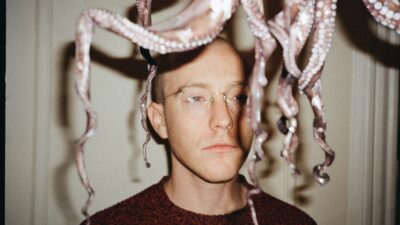
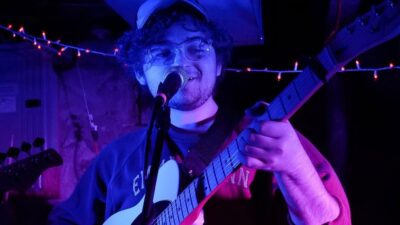
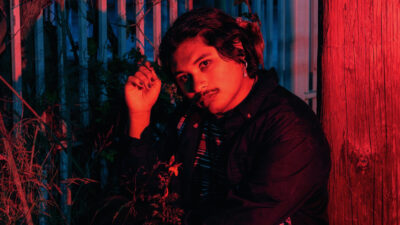


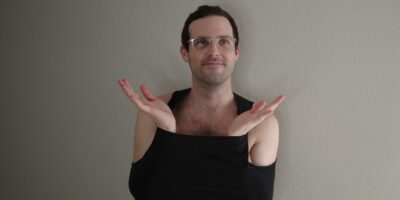
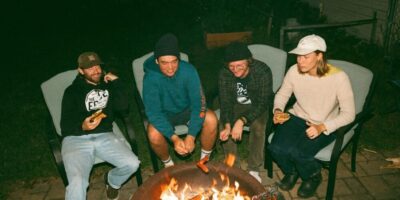




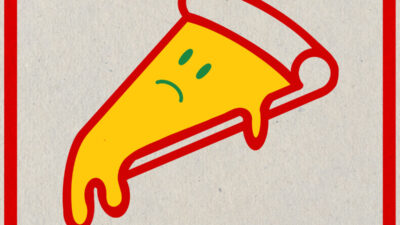
Comments